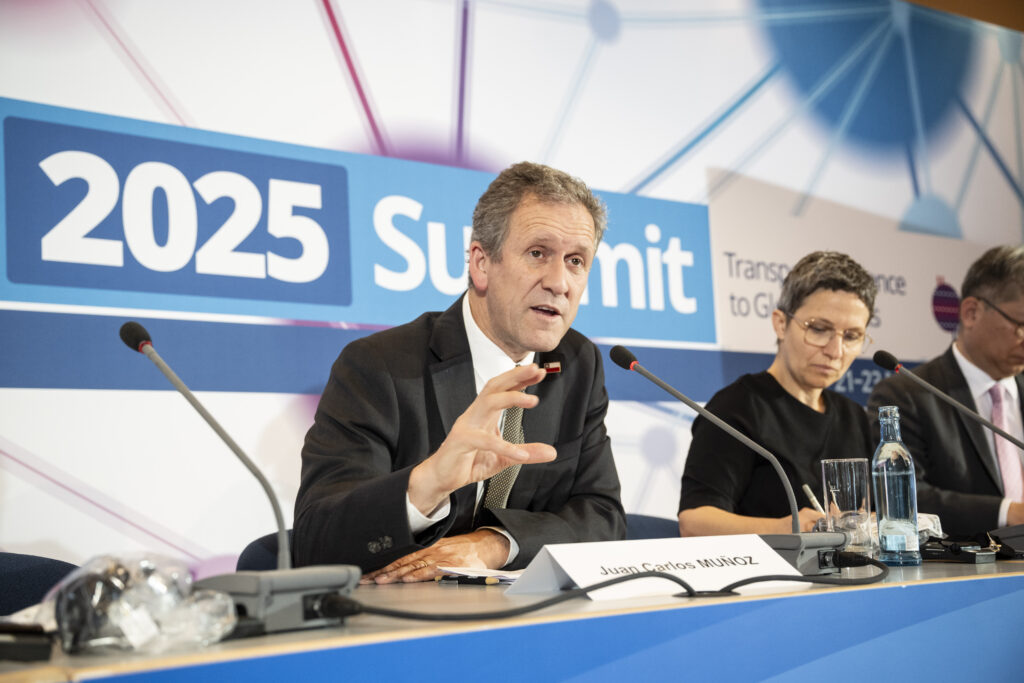
As the 2024 presidency of the International Transport Forum (ITF) concludes, Chile has left a lasting impression, not by steering the entire summit’s agenda, but by consistently and courageously advocating for an issue still too often sidelined in the transport sector: the urgent need to decarbonise it. While climate change is not a dominant theme these days, the Chilean Transport Minister Juan Carlos Muñoz used every opportunity to emphasise that climate action in transport is not just a technical imperative, it’s a moral one.
More sustainable transport systems, he argued, are not only crucial for meeting the Paris Agreement goals, but also key to delivering more equal, socially just, and dignified access to jobs, markets, healthcare, and education. Reiterating his call to action ahead of COP30 in Brazil later this year, Muñoz made a powerful case for connecting these two landmark Latin American presidencies – the Chilean-led ITF Summit and the upcoming Brazilian-led climate negotiations – into a shared momentum for change.
We cannot ignore that transport is a major contributor to global greenhouse gas emissions, accounting for nearly one quarter of CO₂ emissions from energy use. It is clear: we will not meet the goals of the Paris Agreement unless we accelerate the transition to low-carbon transport systems.
Juan Carlos Muñoz, Minister of Transportation and Telecommunications of Chile
This was not just a call for awareness, it was a call for commitment. Chile urged ITF members to push for concrete transport-related goals at COP30, including commitments in countries’ Nationally Determined Contributions (NDCs). Muñoz said: “we are calling on all ITF members to go further, together”. The suggestion of Chile is to establish a sectoral benchmark for transport similar to the energy sector benchmark set at COP28, where countries agreed to triple renewable energy capacity by 2030.
Transport, often overlooked in global climate negotiations, is the largest or second-largest source of emissions in a majority of countries worldwide. Without bold moves in this sector, the world risks falling short of the 1.5°C goal. “In Chile, we are advancing the decarbonisation agenda through an integrated vision of sustainable mobility,” said Minister Muñoz, referencing the country’s National Sustainable Mobility Strategy and Mitigation and Adaptation Plan in the Transport Sector. But as he emphasised: “We know this is not enough.”
Minister Muñoz’s leadership marks a pivotal shift in climate diplomacy. By foregrounding transport at a high-level international forum and pushing for transport-specific goals at COP30, Chile is making the case that sustainable mobility must be central to climate solutions. His efforts reflect a broader momentum in Latin America, a region both vulnerable to climate impacts and rich in potential for clean transport transformation.
As the global climate community prepares for COP30 in Belém, Brazil, Chile’s presidency of the ITF sets the tone for what’s next: a united push to anchor transport firmly within the climate agenda. The road to net-zero transport is long, but the signposts are clear. And with champions like Juan Carlos Muñoz leading the way, there is hope that countries will arrive there together.
 Official ITF Summit Opening Press Conference ©Marco Urban
Official ITF Summit Opening Press Conference ©Marco Urban

Daniel Bongardt
daniel.bongardt@giz.de
Visit profile